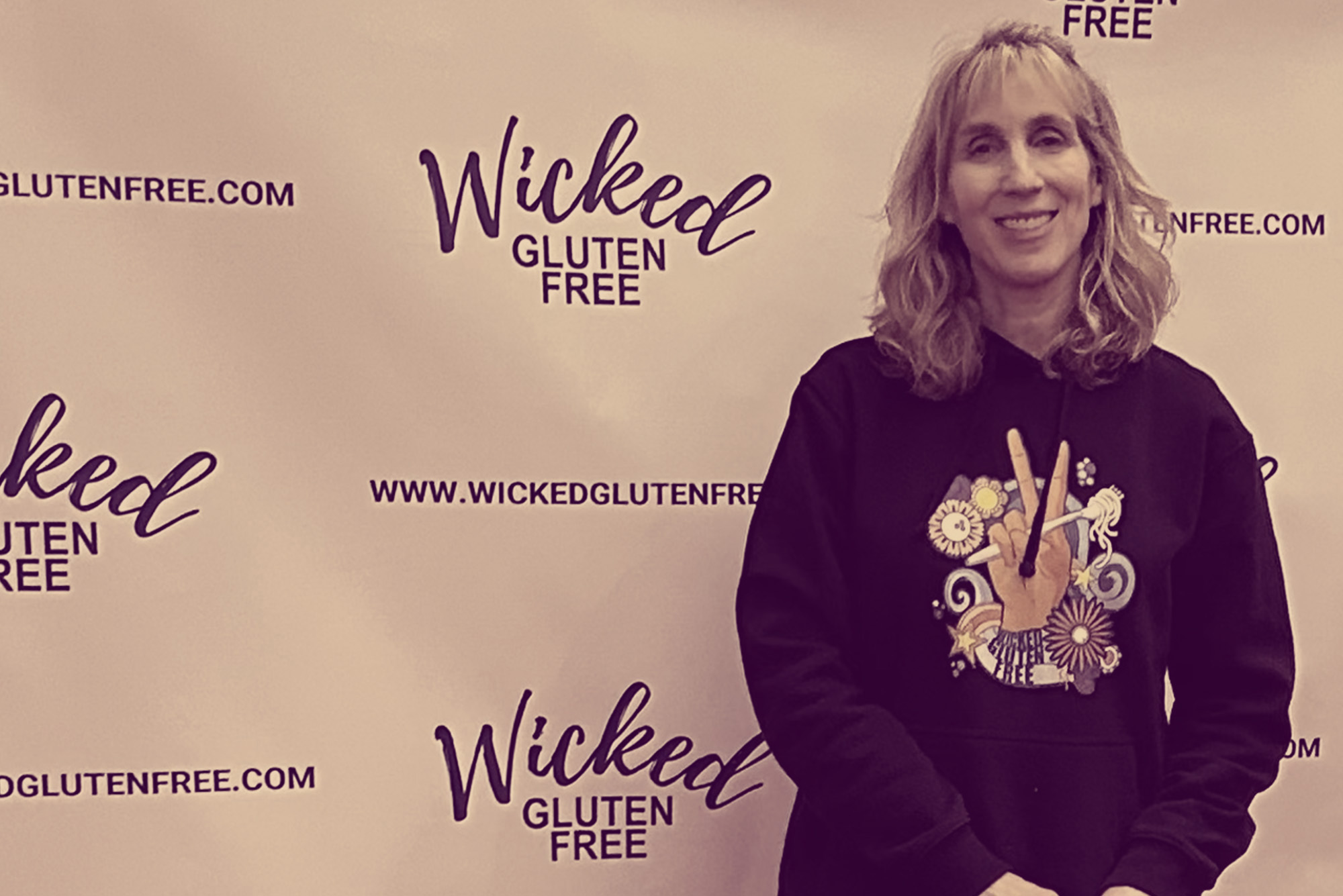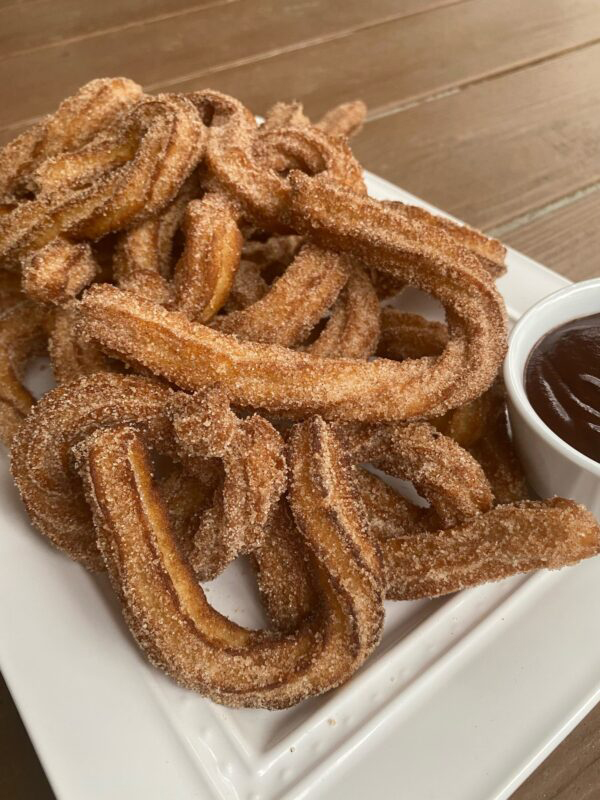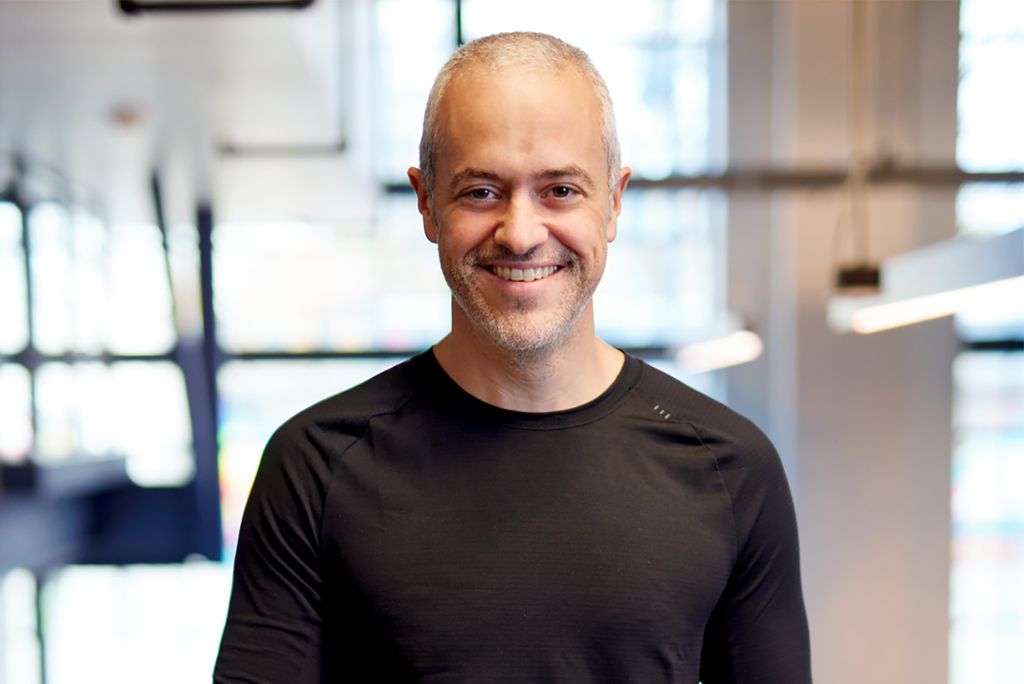My Big Idea: A Directory of Gluten-Free Products, Recipes, and Local Restaurants
Abby Helman Kelly (COM’90) was inspired to launch Gluten-Free New England after struggling with gluten intolerance

Abby Helman Kelly runs the Gluten-Free New England Exposition, a local, biannual festival of all things flourless. The expo was held in Danbury, Conn., on April 1, and will come to Boston’s North Shore in October. Photo by Tom Kelly
A Directory of Gluten-Free Products, Recipes, and Local Restaurants
Abby Helman Kelly (COM’90) was inspired to launch Gluten-Free New England after struggling with gluten intolerance
In our My Big Idea series, we bring you interviews with BU alums and other members of the University community who have launched a business, built a new product, or solved problems big and small. We ask them how they got the idea, what were their biggest stumbling blocks, and what’s next for their big idea.
Know where to find gluten-free cupcakes? Odds are, they’re for sale at your local supermarket. How about gluten-free pierogi, coconut shrimp, or ice cream sandwiches? For those, you might have to ask Abby Helman Kelly.
Diagnosed with gluten intolerance 10 years ago, Helman Kelly (COM’90) knows that it’s a challenging life adjustment to make, yet her brand, Gluten-Free New England, was born out of that challenge. For some, the decision to omit gluten (a protein found in many grains, such as wheat, barley, and rye) stems from personal taste; for others, opting for rice instead of pasta or lettuce instead of a burger bun is a medical necessity.
People with celiac disease, an autoimmune disorder that causes damage to the small intestine when gluten is consumed, are at an increased risk of cancer, heart problems, type-1 diabetes, and renal failure. In the middle of the gluten-intolerance spectrum are folks like Helman Kelly, who experience a range of mild to moderate symptoms after eating certain wheat products. Regardless of why you choose to cut gluten out of your diet, she says, it’s not an easy shift to make.
Gluten-Free New England encompasses a website, social media suite, and biannual exposition, and serves as an opportunity for Helman Kelly to advocate for folks across the gluten sensitivity spectrum by offering products, recipes, tips, and local business recommendations that have been vetted by members of the local communities they serve.
Bostonia interviewed Helman Kelly, who lives in Simsbury, Conn., about how the gluten-free market has grown, what it takes to launch a brand from the ground up, and why passion is the most important ingredient in a successful business.
Q&A
with Abby Helman Kelly
Bostonia: How did Gluten-Free New England start?
Helman Kelly: I became gluten free around 2012 or 2013. I had a major eczema issue that I was treating with cortisone cream, but it always came right back. I went to a naturopath and she said to go off gluten and see what happens—and it worked…but it wasn’t as easy to be gluten-free back then. I thought to myself, well, gee, maybe I could start a hyperlocal online directory in Connecticut, but I had no experience in that area. None. I love the idea of learning, so I did it very slowly. Two years later I ended up expanding to all of New England. I chose wickedglutenfree.com for the website, and the rest is history.
Bostonia: How did you go from no experience to 43,000 followers on Facebook and Instagram and thousands of exposition attendees?
Helman Kelly: My husband, who’s an entrepreneur, coached me. He advised me to set up an LLC, and then I found someone to do the website and they taught me how to operate it. Then I launched the social media and it immediately took off. I decided to do an expo, which, at first, I promoted only on Facebook because that was all I knew—it was all I had. We got this little hotel ballroom and more than 1,000 people showed up; none of the people who worked there knew what to do with all these people. I called it a horrific success.
Bostonia: Why make a dedicated gluten-free information directory?
Helman Kelly: When you’re gluten free, you know what it feels like when you go to a restaurant and you can’t get anything good. It’s not a great feeling, where you have to eat salad all the time. If people with celiac disease get “glutened,” it makes them really sick and they can be out of work for days. For that segment of our audience, it is so important that they find safe foods. You need to check multiple sources to be safe, and even then, if it’s not a dedicated gluten-free establishment, there’s always a risk.
Also, there’s a lot of misunderstanding out there in the world. People still think being gluten free is always a choice and are annoyed by people who are gluten free. There’s this media perception where it’s made to be trivial, but the number of people being diagnosed [with gluten sensitivity or intolerance] or seeking gluten-free options is growing, and it’s not going anywhere.
Bostonia: How has the increase in gluten-free dining affected your operation?
Helman Kelly: The business itself is gaining more interest for advertising and social media collaborations, [and] the website itself is growing on Google. Right now, I’m at another inflection point where it’s time to expand again and bring on some more people. I do it all, and it’s not easy. Part of my problem is that I feel like there’s a certain candor and personality to the posts, a certain I-don’t-take-myself-too-seriously kind of energy. But at this point, I have to expand [my team], or I can’t continue.
Bostonia: Do you get a lot of feedback on your posts?
Helman Kelly: I remember years ago, I put something out about these straws made out of hay—they were compostable—and hay comes from the wheat plant. [The company owner] tested her straws [for gluten content], and they tested as perfectly safe. So, I listed them as a “Hey, look at this,” which was a mistake. Oh, my gosh, I cried. I’ll never forget. I was just like, Oh my god, I’m doing my best! A bunch of our audience is avoiding gluten because they’re sensitive to it, or it just feels better, or they’re shopping for someone else. Those people probably wouldn’t have cared, but they’re not as vocal as people with celiac disease. So now, whenever I put something up, I will mention if a product is made in a shared facility—and I always admit if I get something wrong in a post with a “sorry, it’s now under control” note.

Bostonia: It sounds like there’s a big community element here. How does that factor into your day-to-day work?
On Facebook, there are community forums [for gluten-free individuals] in probably every city across the country. People will say, “I’ve checked all these directories and dining guides, but has anyone been to this restaurant in Newport, because we really want to go,” and someone else will give their feedback. A restaurant might have great gluten-free food and great protocols, but in two months, suddenly the menus change, the servers are different, and someone gets glutened. Then those people will go right to the groups and say, “XYZ restaurant, don’t go, no longer safe.” We love that info; it lets us go back and update our dining guides. We try to keep them as updated as possible, but in the end, we recommend checking multiple sources.
Bostonia: What about the expos? What do those look like?
They’re like a Broadway show: everything kind of needs to go as planned. I always kind of go bigger than I am certain I can handle because I enjoy the stretch. My whole family helps and I also hire a staff for the day—a lot of them are actually influencers. I’ve been doing it since 2016, so I have a really nice community of people who come to the expos but also will work the day for me. We also do a lot of promotion on Facebook and Instagram and Patch—wherever the audience lies. [In addition to the exhibitors], there’s an education component, where we do seminars and demos.
Bostonia: Where do you host the expos?
This year, [we did] Danbury, Conn., in the spring, and we’re doing Boston North Shore on October 21, which is a whole other population. I was [previously] doing one in Greenwich because it’s close to New York—there’s a need, and there’s so many people. There are people who travel to all of them, because it’s worth it.
Bostonia: What advice would you give to someone who wants to launch their own brand?
That whole “do something that you really love, and the rest will follow” thing really worked for me. But you also have to do your due diligence and make sure there’s a market for what you love, and there’s support for it and an audience for it. You might love it, but you gotta make sure that other people will love it. I put in the number of hours I put in because I love it. I work really hard because I love it, and it’s mine.
Bostonia: What has been the biggest reward so far?
Definitely the feedback. I get emails from people saying, “Thank you so much for doing this, we’re so appreciative, we would have never found this if it wasn’t for your site.” Everyone’s really grateful and that’s really gratifying in the end. It’s all come full circle for me.
Find out more about Gluten-Free New England on their website, Instagram, Facebook and Twitter. Information about the upcoming Gluten-Free New England expos can be found here.

Comments & Discussion
Boston University moderates comments to facilitate an informed, substantive, civil conversation. Abusive, profane, self-promotional, misleading, incoherent or off-topic comments will be rejected. Moderators are staffed during regular business hours (EST) and can only accept comments written in English. Statistics or facts must include a citation or a link to the citation.